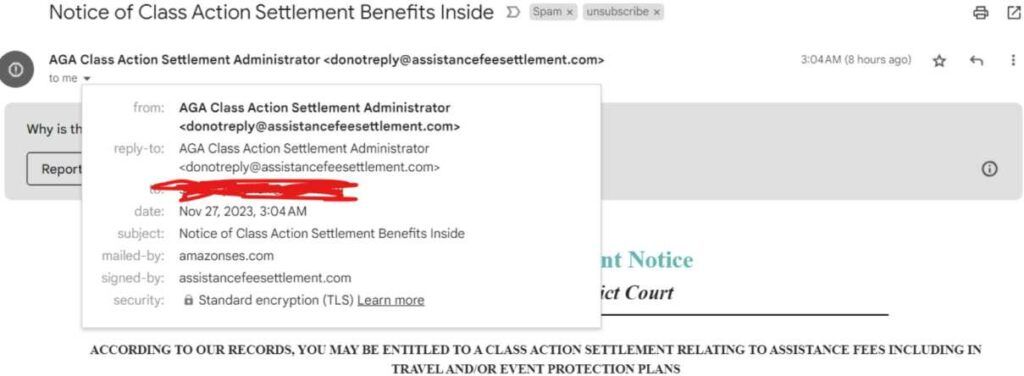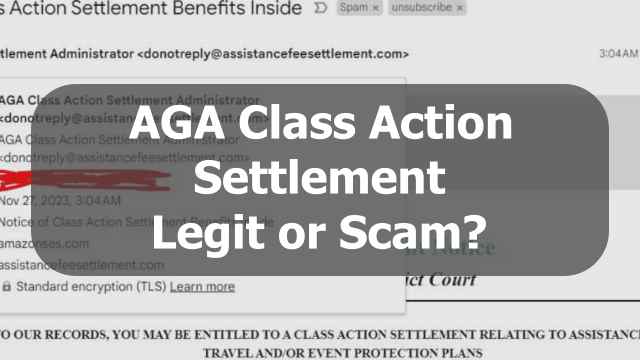Due to numerous frauds involving emails purporting to be class settlement notices, a small number of people have received emails about the AGA Class Action settlement notice and have begun to suspect them.
As a result, we will analyze the AGA Class Action Settlement Emails in this post and inform you of its veracity.
What is AGA Class Action Settlement?
In the US District Court for the Northern District of California, a class action settlement has been reached in the case of Elgindy et al. v. AGA Service. The lawsuits against AGA Service Company, Jefferson Insurance Company, and BCS Insurance Company (defendants) will be settled by this class action settlement.
Because assistance Fees for “non-insurance assistance services” are included in the plan costs for Defendants’ Travel and/or Event Protection Plans, Plaintiffs claim in the Actions that Defendants’ sales were illegal, unfair, and/or deceptive.
Additionally, you will be eligible for benefits if you bought one or more Allianz Travel and Event Protection Plans between specific dates and paid a price that included assistance fees for the support services that were part of your purchase.
At last, you need to file a Claim Form to get the benefits. The Claim Form may be completed online or printed and mailed to the Settlement Administrator at Assistance Fee Settlement Administrator, 1650 Arch Street, Suite 2210, Philadelphia, PA 19103.
Read: Le Creuset Cookware Giveaway
AGA Class Action Settlement Emails Review
Numerous individuals have been notified via email about the AGA Class Action Settlement and have provided written instructions on how to claim your benefits. You should be aware that con artists become more common during these news events in an attempt to deceive people.

While it’s possible that these emails originated from official agencies, you should also be aware of the warning signs of scam emails in case scammers start sending emails purporting to be from official authorities.
The first is that con artists always pose as official authorities by using a slightly modified email address. Furthermore, the textual content of scam emails consistently contains grammatical faults and an amateurish tone.
Consequently, you should disregard communications posing as class action settlements right away if you encounter any of these warning signs in them.
